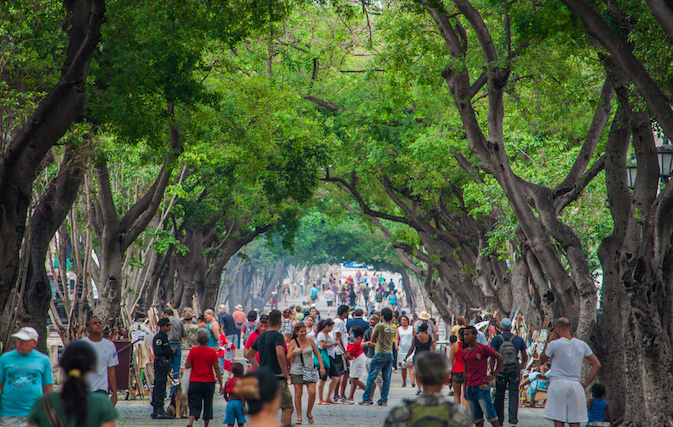HAVANA — Known for chaotic avenues filled with car-dodging pedestrians, balconies that discharge waterfalls onto sidewalks and reggaeton played at deafening volume, Havana wants to clean up its streets.
Havana authorities have passed new city codes meant to make streets around nearly three dozen commercial shopping zones more pleasant both for Cubans and the surging number of foreign tourists.
“You really see the deterioration,” said Mileidis Garcia, who sells pinatas and decorations for birthday parties around one of the capital’s busiest markets, one of the areas targeted by the new regulations. “The streets are filthy too,” she said, motioning to discarded scraps of paper, cookie wrappers, white plastic bags, soda cans and cigarette butts piled alongside her sidewalk.
She echoes a worry expressed by Cuban officials that such carelessness could indicate a lack of civic culture.
“It’s like there is no sense of ownership, it’s not your house, it’s the street,” Garcia said. “But the city is your home too.”
The new rules call for the including the installation of garbage cans, face-lifts for bus stops, thrice-daily sidewalk sweeping and the planting of trees along streets, according to Isabel Hamze, vice-president of Havana’s city government.
She said the city also plans improved street lighting, inspections of places selling food and a ban on the unusual Cuban practice of selling beer directly from the taps of tanker trucks. Storefronts will be spruced up and unsightly street vendors will be run off.
The capitalist building booms that transformed many cities across the region bypassed socialist Havana, leaving the city a jewel box of colonial and early 20th century architecture. But maintenance was long lacking, and the deterioration accelerated in the early 1990s with the loss of aid and trade with Cuba’s allies in the collapsing Soviet bloc.
The government has pumped millions of dollars into a dramatic restoration across parts of the capital, but nearby streets can be nearly in ruins.
“Today Havana is declining,” said Ramon Sanchez, a 60-year-old who keeps an eye on people’s cars. Before, “the city was clean, there were manners, more formality.”
“That’s why there was a revolution. I would like my Havana to be like it was, clean,” he said.
But the new rules go beyond keeping garbage in check. Authorities also want to put a stop to illegal construction, which sometimes leads to rooms or garages that block sidewalks, and to restrict the use of loudspeakers.
Authorities promise enforcement, including fines, and many hope that will stick.
“This can’t just be on paper. They have to apply it, make it happen,” said Francisco Reyes, a maintenance worker. “It’s for everyone’s wellbeing.”
